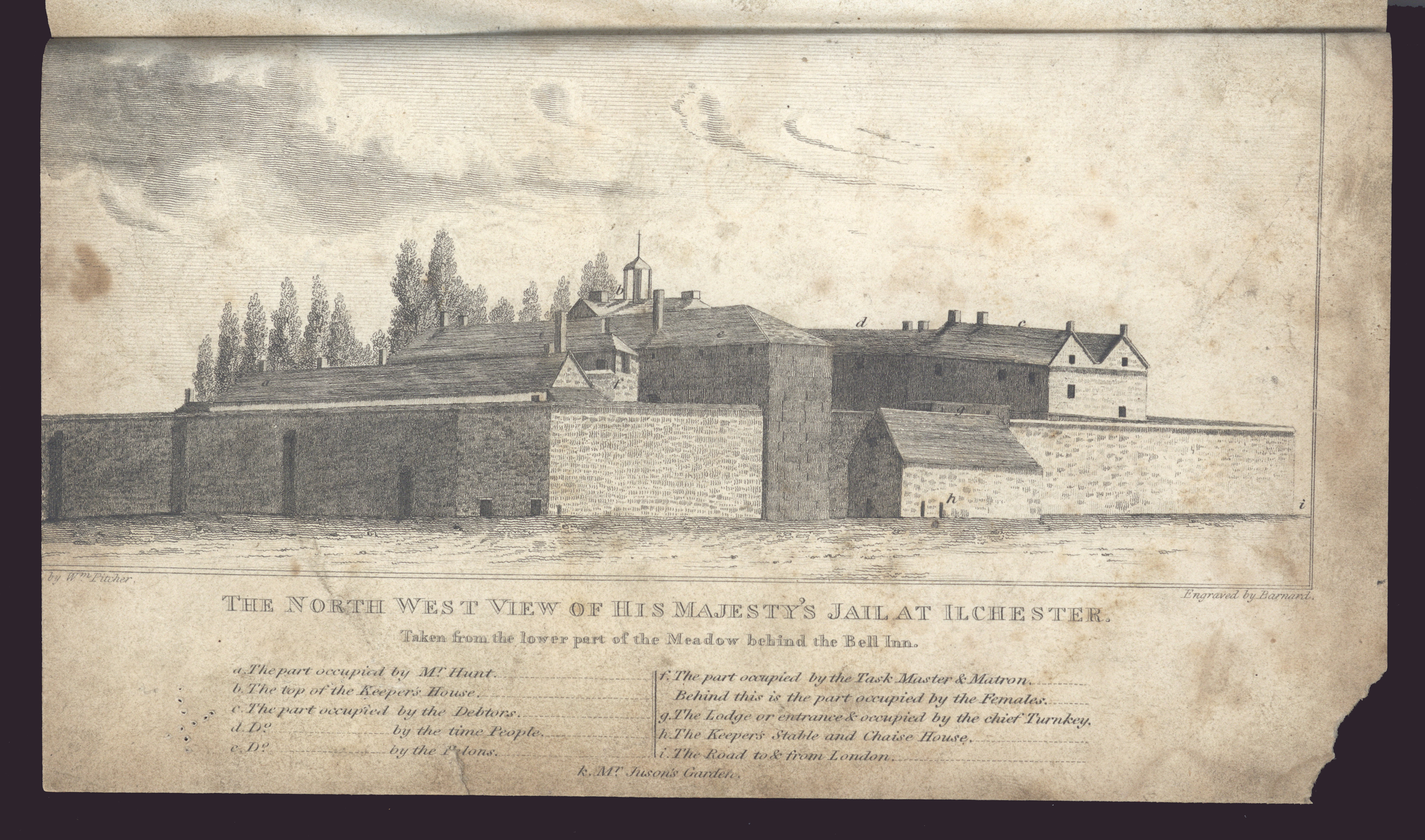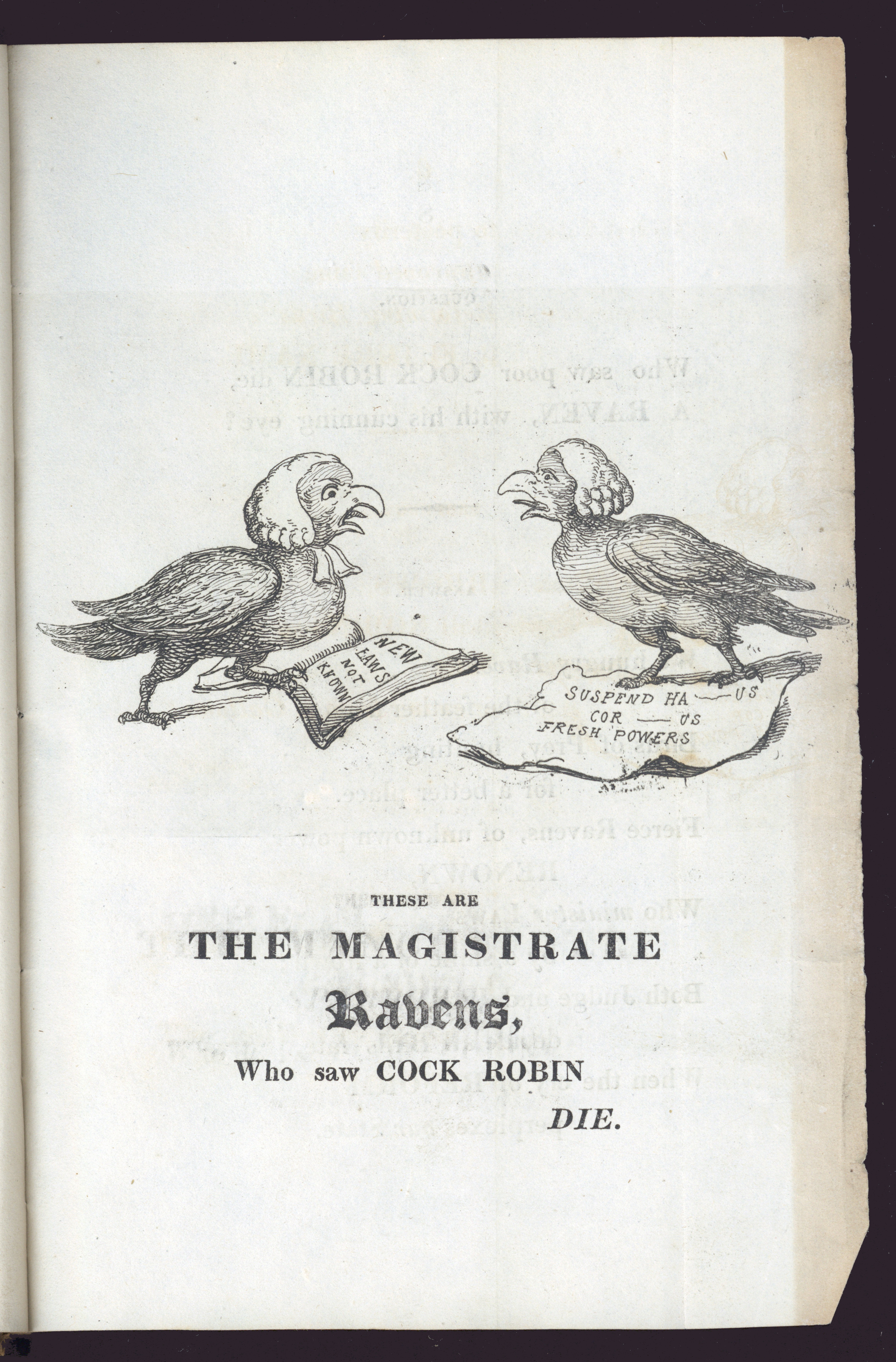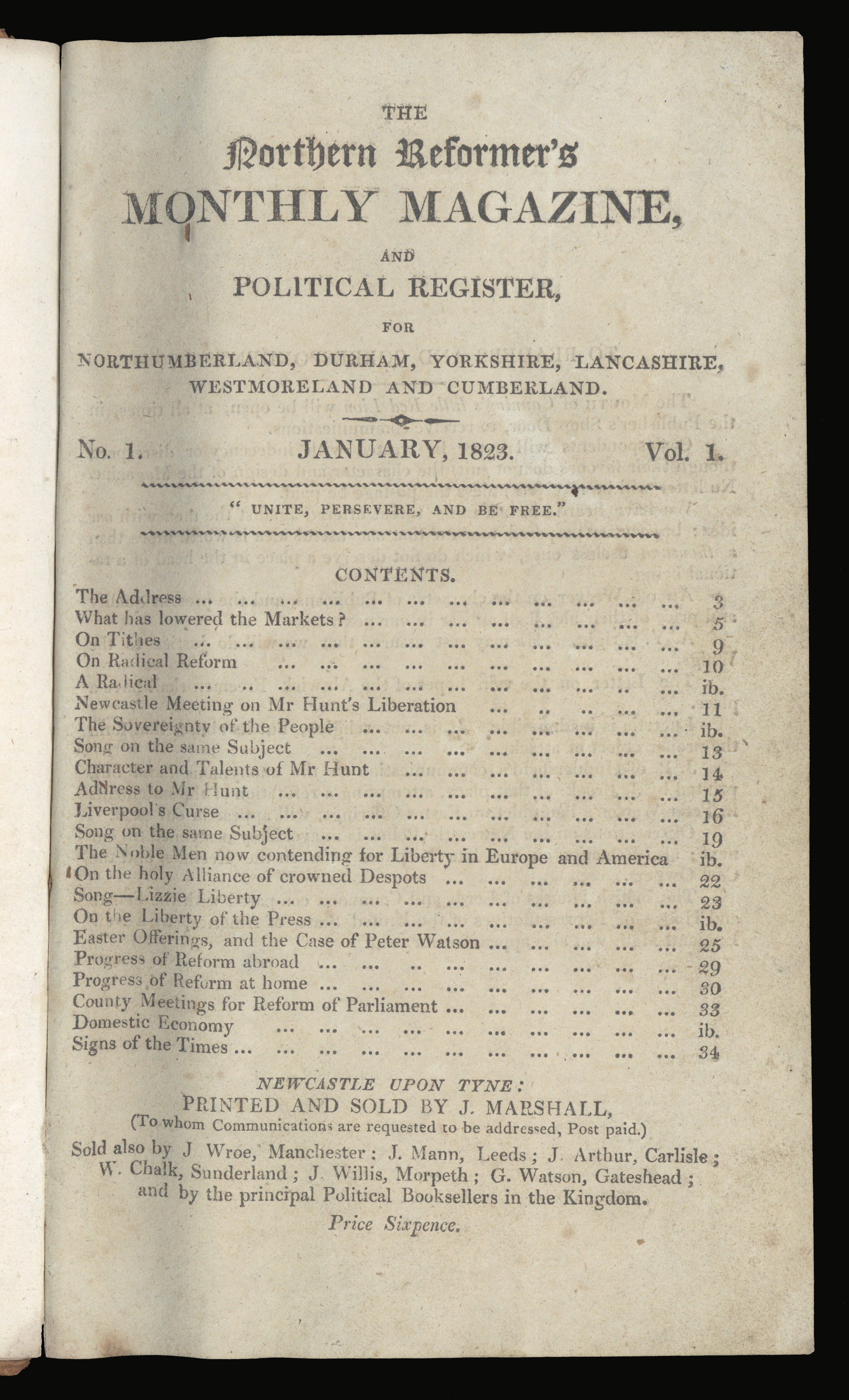The consequences of the Napoleonic Wars (1815) and the effects of the Corn Laws (tariffs and trade restrictions designed to keep grain prices high) were keenly felt in the north of England: there was famine and chronic unemployment. Furthermore, despite its large and dense populations, the north had poor political representation. There were substantial numbers of industrial workers that did not have a vote and, at that time, some sizable towns had no MP whilst ‘rotten boroughs’ (boroughs that no longer existed) did. Dissatisfaction manifested itself in the form of riots in towns including Newcastle.
One working class man, Henry Hunt, distinguished himself as an orator (a skilled public speaker). Hunt believed in equal rights, universal suffrage, parliamentary reform and an end to child labour. Hunt was to address a demonstration organised by the Manchester Patriotic Union at St. Peter’s Field, Manchester on 16th August 1819. That demonstration came to be known as the ‘Peterloo Massacre’ and is considered to be one of the most seminal events in radical British history. Magistrates summoned the Yeomanry who charged into the crowd, knocking down a woman and killing a child. The 15th Hussars were then summoned. They also charged, with sabres drawn, killing 15 people and injuring an estimated 400-700 more.

‘These are the Manchester Sparrows, Who kill’d Poor Robins, with Bows and Arrows’. From: Who Killed Cock Robin? A Satirical Tragedy, or Hieroglyphic Prophecy on the Manchester Blot!!! (London: John Cahuac, 1819) Cowen Tracts v.136, n.1
Henry Hunt was arrested and jailed, in Ilchester, for two years. (In March 1822, reformers in Newcastle petitioned the House of Commons to liberate Hunt. The petition was presented by J. G. Lambton but was rejected.) Journalist, James Wroe, coined the name ‘Peterloo Massacre’ – a pun on the Battle of Waterloo. His newspaper, the Manchester Observer, was shut down and Wroe was imprisoned for seditious libel. John Tyas, a reporter with the Times, was on the hustings and was also arrested.

‘The North West View of his Majesty’s Jail at Ilchester’. From: Memoirs of Henry Hunt, Esq. Written by Himself, in His Majesty’s Jail at Ilchester, in the County of Somerset (London: T. Dolby, 1820) 19th Century Collection 942.073 HUN
Peterloo precipitated a movement of protest that swept across the country. Indeed, a demonstration held in Newcastle, 11th October 1819, was possibly the largest such event. At the same time, the government cracked down on reform. People could already be arrested without a trial (the suspension of Habeas Corpus) and new legislation, the Six Acts, legitimised house searches and the punishment of any writer that criticised the Government. First and foremost, the Government went after the press: cheap periodicals were suppressed under the Six Acts, which forced publishers to pay a bond to the Government of £300 in London (worth approximately £17,229 today) and £200 in the provinces (worth approximately £11,486 today). A 4d duty (approximately 96p in today’s worth) applied to periodicals that were published more frequently than every 26 days, sold for less than 6d and contained public news.

‘These are the Magistrate Ravens, Who saw Cock Robin die’. From: Who Killed Cock Robin? A Satirical Tragedy, or Hieroglyphic Prophecy on the Manchester Blot!!! (London: John Cahuac, 1819) Cowen Tracts v.136, n.1.
That didn’t stop Newcastle printer and bookseller, John Marshall, from publishing The Northern Reformer’s Monthly Magazine and Political Register, for Northumberland, Durham, Yorkshire, Lancashire, Westmoreland and Cumberland (1823-1824). It comprised a series of articles on working class radical political reform in the Northern Counties, principally calling for greater democratic representation and focusing on Newcastle in particular. The first issue contains an account by Eneas Mackenzie of John Marshall himself speaking at a meeting in Newcastle to celebrate the release from prison of Henry Hunt. Marshall supported several radical causes including the victims of the Peterloo Massacre, and had earlier published Radical Monday. A letter from Bob in Gotham to his Cousin Bob in the Country, containing an account of that glorious day!! which describes that open air meeting held in Newcastle on 11th October 1819.

The Northern Reformer’s Monthly Magazine, and Political Register, for Northumberland, Durham, Yorkshire, Lancashire, Westmoreland and Cumberland (Newcastle upon Tyne: J. Marshall, 1823) Rare Books 941.074 NOR
13 years would pass before the 1832 Reform Act abolished rotten boroughs, created new boroughs in towns and gave 200,000 more men the vote. It was not until the Representation of the People Act (1918) that all men aged 21 and above were enfranchised. Women waited until 1928 to be given the right to vote on the same terms as men.
